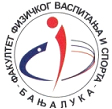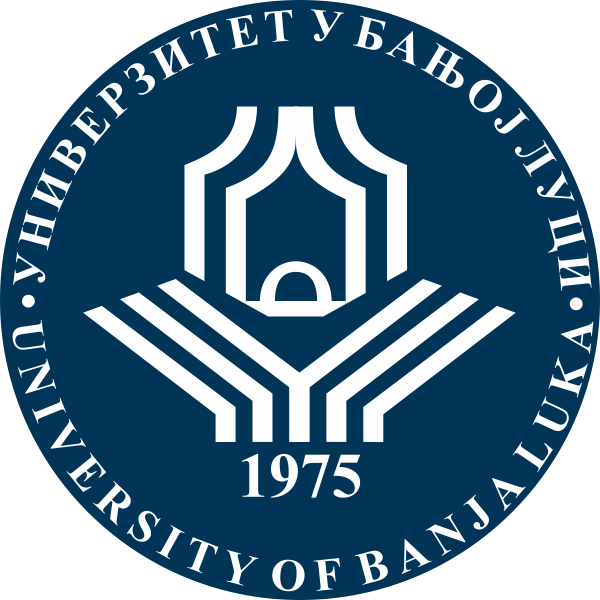SportLogia
Vol. 7, Issue 2, Decembar 2011.
ANALYSIS RESULTS JUDGING WORLD CHAMPIONSHIPS
IN MEN’S ARTISTIC GYMNASTICS IN THE LONDON 2009 YEAR
Almir Atiković1, Sunčica Delaš Kalinski2, Snežana Bijelić3, and Nađija Avdibašić Vukadinović1
1Faculty of Physical Education and Sport, University of Tuzla, Bosnia and Herzegovina
2Faculty of Kinesiology, University of Split, Croatia
3Faculty of Sport and Physical Education, University of Banja Luka, Bosnia and Herzegovina
ORGINAL SCIENTIFIC PAPER
10.5550/sgia.110702.en.095A
COBISS.BH-ID: 2431512
UDC: 796.411(410.111.11)
Summary
FULL TEXT (.pdf) free of charge
On a sample of 176 male gymnasts, we analyzed the score of judges from the World Championship in men’s artistic gymnastics, held 2009 in London. The subject of the analysis was the final scores competitors got for the exercises shown in the qualifying competition (C I). Analysis problem was determination of the differences on individual apparatus between judges E1 to E6 and apparatus. The main objective of this study was to determine the reliability of evaluation of judges and whether the current Code of Points (Federation Internationale de Gymnastique, 2009b) should be revised in terms of equalizing score on apparatus. Equality was tested for the achieved D, E and all-around scores on the disciplines of floor exercise, pommel horse, rings, vault, parallel bars and horizontal bar. Vault has the highest D and E scores, while pommel horse the lowest D and E scores. T-tests showed that those two disciplines significantly differ from other disciplines. Reliability were calculated (intraclass correlation coefficient ICR, Cronbach’s alpha, differences in mean E1 to E6 between judges were tested using factor analyses with method first major component. All data was analyzed using SPSS Statistics 17.0. Results show very high reliability (e.g. Cronbach’s alpha range from .94 up to .98).
References:
Ansorge, C. J., Scheer, J. K., Laub, J., & Howard, J. (1978). Bias in Judging Women’s Gymnastics Induced by Expectations of Within-Team Order. Research Quarterly for Exercise & Sport, 49(4),
399–405.
Ansorge, J. Ch., & Scheer, K. J. (1988). International bias detected in judging gymnastic competition at the 1984 Olympic games. Research Quarterly for Exercise & Sport, 59(2), 103–107.
Bučar Pajek, M., Forbes, W., Pajek, J., Leskošek, B., & Čuk, I. (2011). Reliability of Real Time Judging System (RTJS). Science of Gymnastics Journal, 3(2), 47–54. Retrived from http://www.fsp.uni-lj.si/mma_bin.php?id=20110602094248.
Čuk, I., & Atiković, A. (2009). Are Disciplines in All-around Men’s Artistic Gymnastics Equal? Sport Scientific & Practical Aspects International Journal of Kinesiology, 6(1&2), 8–13. Retrived from http://www.sportspa.com.ba/download2009.html
Čuk, I., & Forbes, W. (2006). Kam greš, sojenje? [Where do the trial?]. In E. Kolar and S. Piletič (Eds.), Gymnastics for coaches and teachers 2 (pp. 76–86). Ljubljana, Slovenia: Gymnastics Federation of Slovenia.
Čuk, I., & Forbes, W. (2010). How apparatus difficulty scores affect all around results in men’s artistic gymnastics. Science of Gymnastics Journal, 2(3), 57–63. Retrived from http://www.fsp.uni-lj.si/mma_bin.php?id=2010093010022523
Federation Internationale de Gymnastique (2006). Code of Points for Men Artistic Gymnastics Competitions. London, GB: FIG.
Federation Internationale de Gymnastique (2009a). Artistics gymnastics book of results. London, GB: FIG.
Federation Internationale de Gymnastique (2009b). Code of Points for Men Artistic Gymnastics Competitions. London, GB: FIG.
Hraski, Ž. (1988). Valorizacija suđenja u muškoj sportskoj gimnastici [Valuation of the judging in men’s gymnastics]. Kineziologija, 20(2), 143–152.
Leskošek, B., Čuk, I., Karácsony, I., Pajek, J., & Bučar, M. (2010). Reliability and validity of judging in mens artistic gymnastics at the 2009 University games. Science of Gymnastics Journal, 2(1), 25–34. Retrived from http:// www.fsp.uni-lj.si/mma_bin.php?id=2010020920531429
Popović, R. (2000). International Bias Detected in Judging Rhythmic Gymnastics Competition at Sydney 2000 Olympic Games. Facta Universitatis 1(7), 1–13.




